Overview
Wearable sensors and mobile health, home healthcare technology, surgival robotics, wireless capsule endoscopy, wearable robotics for rehabilitation
Research Interests
Biomedical Engineering Laboratory’s Research Areas:
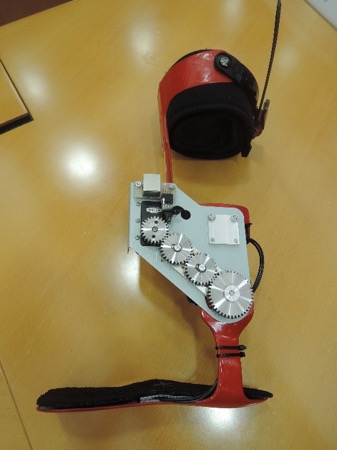
Robotics: Intention-driven Electromechanical Rehabilitation Robotic to facilitate motor-relearning
Details: Link
EEGO: Brain Computer Interface (BCI) measures EEG for training the activation pattern on cortex
Details: Link
HOPE4Care: Integrating fun and latest technologies, exploits the new era of elderly exercise and stroke rehabilitation
Details: Link
Molecular Diagnostics Laboratory’s Research Areas:
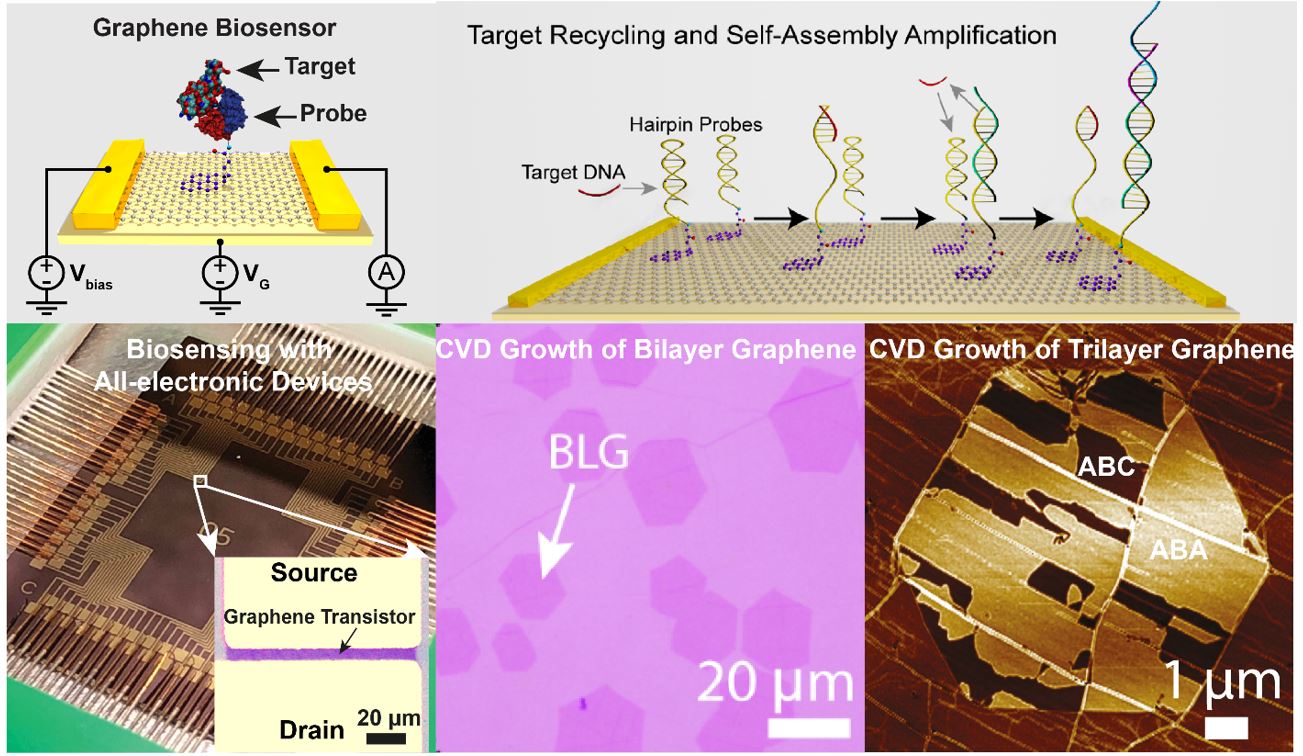
Our research thrusts include the translation of field-effect and electrochemical biosensing devices into biomedical applications in disease diagnosis, wearable health monitoring devices, as well as two-dimensional materials and van der Waals hetero-structures of them for next-generation biosensors.
- Development of electronic biosensors based on two-dimensional (2D) materials to understand complex biological systems
- Translation of biosensing devices into biomedical applications in early disease diagnosis, point-of-care testing, and wearable health monitoring
- Strain- and defect-engineering in atomically thin materials and their van der Waals heterostructures for next-generation electronic biosensors.
Details: http://www.zlgao.com
Medical Robotics Laboratory’s Research Areas:
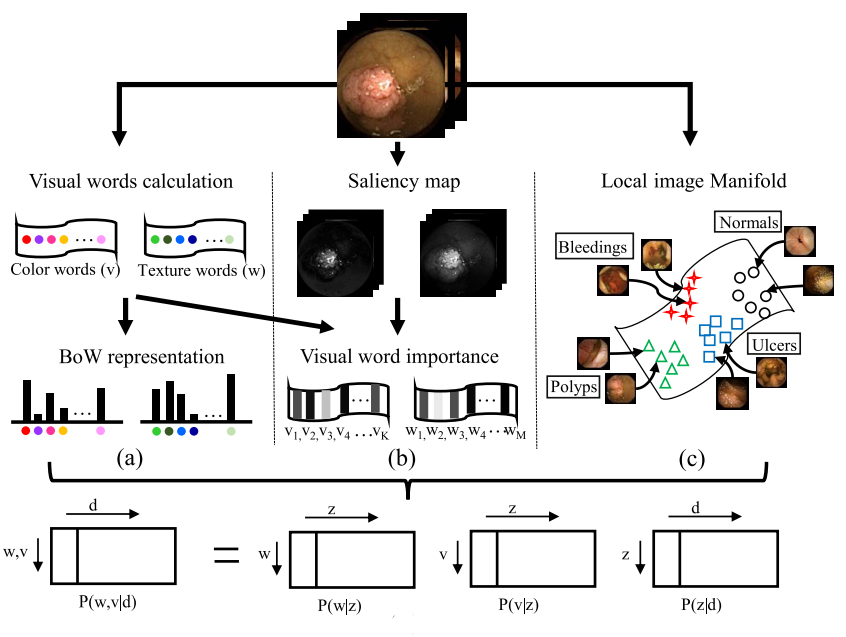
Robotics and Perception Lab aim at elevating the societal impact of robotics research by delivering tangible services and benefits to general public through solid theoretical investigations and focused technological developments. Build on our internationally leading achievements, our current research efforts are concentrated on
- Robotic wireless capsule endoscopy with image based automatic diagnosis,
- Surgical robotic systems to facilitate minimally invasive and painless/scarless NOTES surgical procedures, and
- Robotic perception and scenario intelligence to enable service robots to interact better with general public and to understand better their working environments, with practical solutions such as empowering robots to operate untrained -elevators.
Details: http://www.ee.cuhk.edu.hk/~qhmeng/research.html
Smart Materials and Structures Laboratory’s Research Areas:
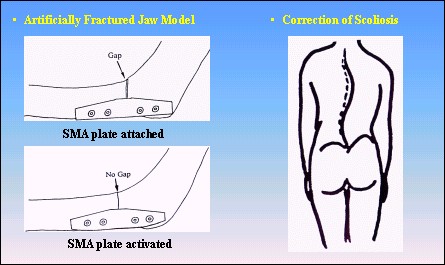
- Adaptive Temperature Control Valves Using Shape Memory Alloys
- Designing Novel Surgical Tools Using Shape Memory Alloys
- High-Performance Vibration Damping for Electronics Manufacturing Equipment
- Inchworm Motor Systems for Nanopositioning
- Magnetorheological Fluids with Nanoparticles for Microaccelerometers
- Precision Positioning of Hard Disk Drives
- Self-Powered Piezoelectric Sensors
- Smart Dampers for Train Suspension Systems
- Vibration Control Using Enhanced Self-Sensing Piezoelectric Actuators
Details: http://www.mae.cuhk.edu.hk/~sms/projects_frame.html
Multi-scale Precision Instrumentation Laboratory’s Research Areas:
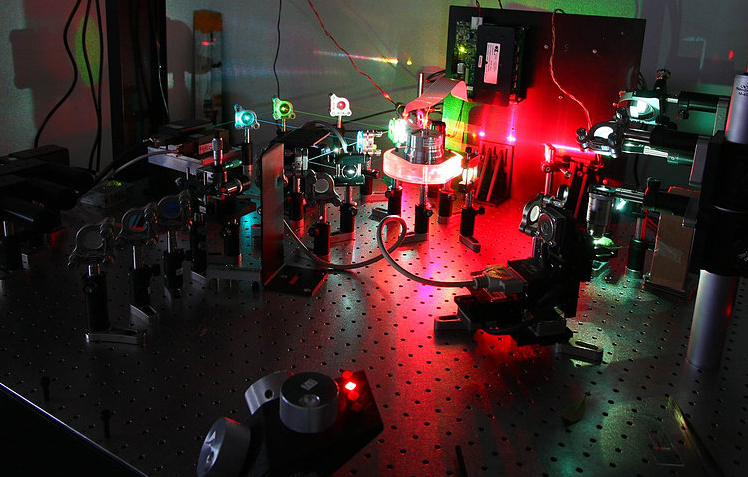
- Ultrafast Laser Applications
- Biomedical Optics
- Precision Engineering
- Nanomanufacturing
- MEMS / BioMEMS
Details: https://www.mpil.mae.cuhk.edu.hk/
Publications
Facilities
Optical Tracking system Flex3 and V120 Trio
"http://optitrack.com/products/v120-trio/
http://optitrack.com/products/flex-3/
UR5 Robotic Arm
https://www.universal-robots.com/products/ur5-robot/
Segway Mapping
https://msu.edu/~luckie/segway/rmp/rmp.html
CUHK Jockey Club Minimally Invasive Surgical Skills Centre
http://www.hkmisc.org.hk/facilities.asp







